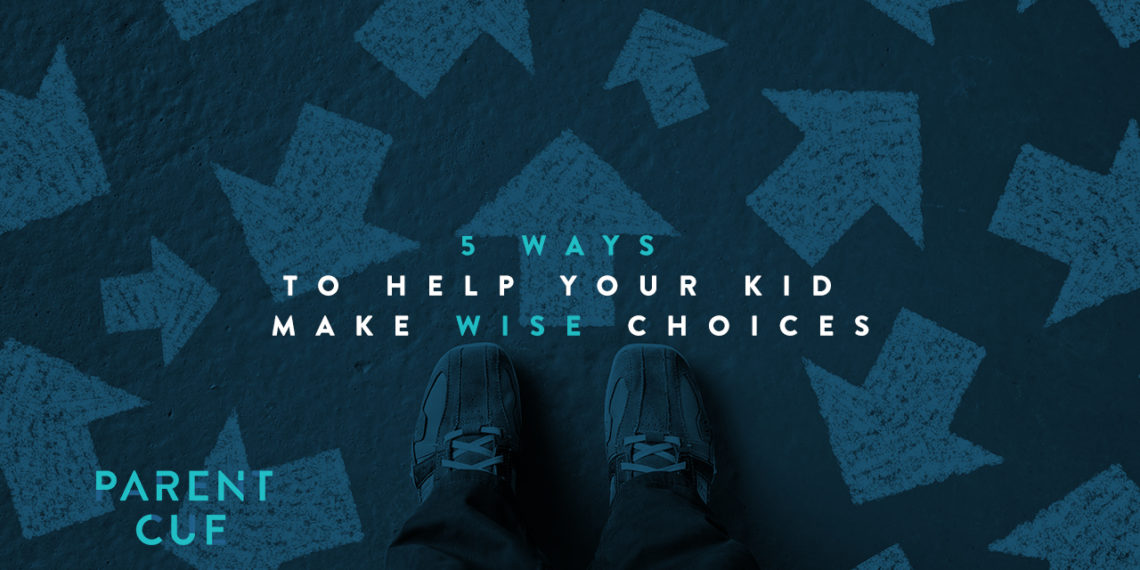
Posted by Dan Scott
Any of these sound familiar?
Dad, can I ride my skateboard down the driveway and into the street?
Mom, can we jump off the roof into the pool?
Mom, can I slide down the banister?
Dad, can I jump on that beehive right there?
When you hear questions like that you want to scream, “NO!”
That, or run crying into your bedroom and hide under the sheets until your kids grow into adults.
Let’s face it, some decisions are easy to make. Clearly, the beehive should be left alone.
Others? Not so much. Sliding down the right banister can actually be pretty fun.
As parents, we’ve (hopefully) figured out how to make a wise choice over time. Our kids on the other hand are just starting their journey to discovering wisdom, and unfortunately, choices aren’t always cut and dry. As our kids grow up they’ll soon learn that the decisions they’ll have to make are not as black and white as we might wish.
Helping kids understand that is often easier said than done. How do we help our kids learn the importance of wisdom and making the wise choice?
1. MODEL YOUR OWN DECISION-MAKING PROCESS
Kids are concrete thinkers, and often that means they need some connections made that are intuitive to you. As you walk through a decision such as what to eat for a healthy snack or how to respond to a neighbor’s barky dog, verbalize what’s normally just inside your head. Invite kids into the process and ask them their opinion. If it’s a big choice that you’re praying about (like buying a car or new home), pray with them about that decision as you ask God for wisdom. When your kids see you make wise choices, they’ll be more likely to make the wise choice themselves.
2. TELL STORIES
The Bible is full of people who both succeeded and failed at wisdom. Read those stories together and talk about the consequences they experienced. And not only the Bible, as you’re reading (or watching) anything with your children, pause and talk through the decisions you’re seeing played out in the storyline. Use these as teachable moments to help kids discover more about wisdom.
3. GIVE THEM OPPORTUNITIES TO MAKE THE WISE CHOICE
We often think it’s easier to make decisions for our kids. And let’s be honest—it usually is. But when we consider the end in mind for our kids, this isn’t the best thing for them. Rather than give them the answer to decision, we can guide them through the process making the wise choice. Ask questions that walk them through the sorts of ideas they should consider when making a decision. Eventually, they’ll start asking themselves those same types of questions. They may still not make the choice you wish they’d make, but at least they’re thinking through it. And who knows, they may surprise you and consider something that you hadn’t.
4. LET THEM MESS UP
Like or not, we often don’t learn without messing up once or ten times along the way. As much as you’ll want to step in and fix it, resist the urge to rescue your kids from the consequences of their choices. It’s hard to watch of course, but sometimes we need to let our kids touch the proverbial stove in the short-term choices to help them gain wisdom that will help them win at the rest of their life. And if they do mess up (and they will), don’t take away their responsibility. Let them learn from their mistake and get back at it. Show them that you can still trust them even when they mess up. This will help give them confidence to get back at it and grow in wisdom.
5. CELEBRATE THE WINS
When your kids make the wise choice, let them know you noticed. Celebrate them with a high-five, a hug, or slip a note into their lunch box. You don’t need to throw a party to celebrate they chose to finish their homework before playing video games all week, but showing appreciation will affirm those choices and reinforce to your kids that it was worth the effort to make the wise choice.
When it comes to wisdom—finding out what you should do and doing it—it’s important to remember that parenting is a marathon sport. Over time, the conversations that you have about making decisions will influence your children to consider the value of wisdom. Giving kids a strong foundation of wisdom is important. Let’s equip them to face down whatever choice they may face in the future.





